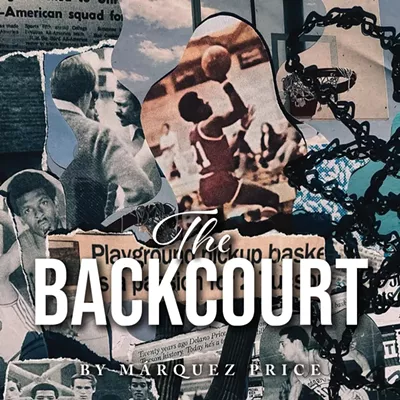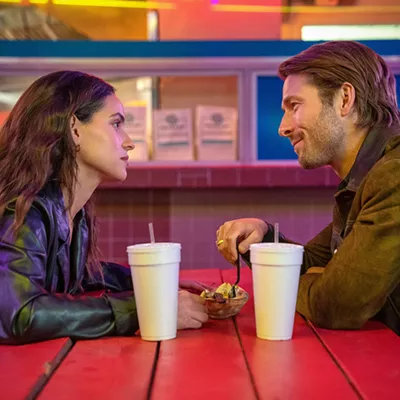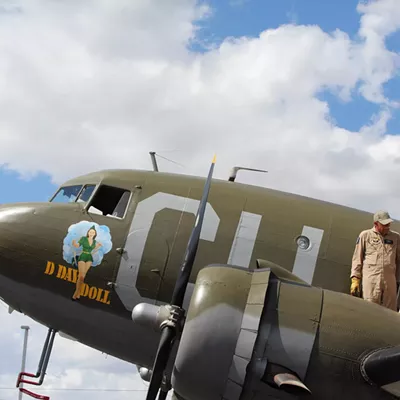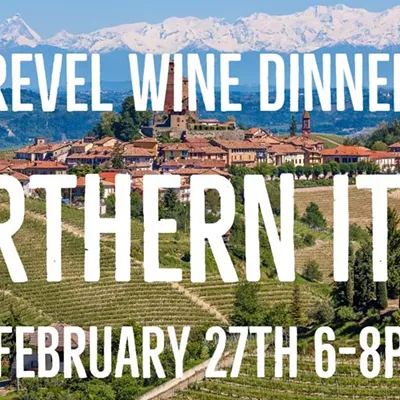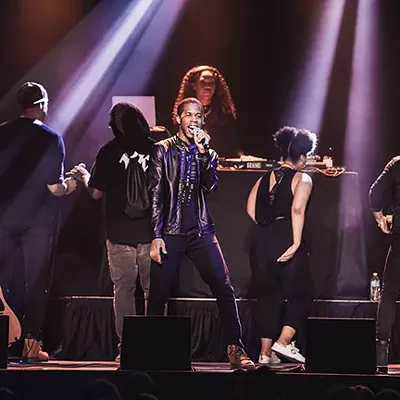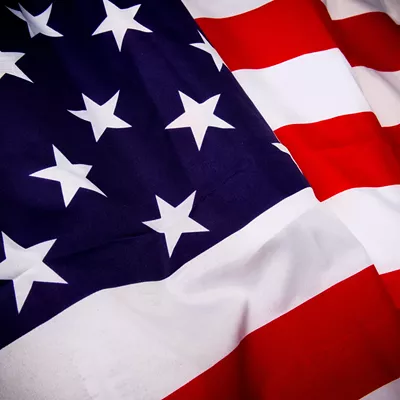I'm talking about, of course, Kwanzaa, that glorious weeklong festival celebrated by tens of people around the country and given more fawning media attention than the entire cast of Friends. It's not that it's a bad holiday, per se; it's just that it seems ... well, forced.
According to the official Kwanzaa Web site (named, oddly enough, www.officialkwanzaawebsite.org), the festival was just made up by a guy named Maulana Karenga. I looked Kwanzaa up on Encarta and there was this glowing entry on the festival, but then I noticed that the passage had been written by Karenga himself. He claims that the festival is based on an African harvest celebration known as matunda ya kwanza, which is Swahili for "first fruits."
Here's where problems start to pop up. First off, I've never understood why the Afrocentric movement in the U.S. focuses on Swahili. It's a nice language and even the name sounds cool, but Swahili is spoken by people in the eastern and central parts of Africa. If learning an African language is an attempt to maintain a link to the distant ancestors who were brought to America against their will under the bonds of slavery, then people should speak one of the more indigenous Bantu tongues, like Fulfulde or Mande, from which comes the term "Mandingo."
My friend Bill Washington suggested that it might be that Swahili is the most common language in all of Africa and therefore more appropriate. But actually, far and away the most common language in Africa is English. Heck, more people speak the local type of Arabic in Egypt than speak Swahili in all the rest of the continent. It's entirely possible that more people in Africa speak French than Swahili.
Trying to make Swahili seem relevant to black Americans is like some of those pretentious Spanish teachers in Tucson who teach kids to speak Castilian because it has some built-in snob value over the more common (and infinitely more useful) Mexican dialect. However, if you want to teach kids Swahili, knock yourself out. Just be sure to tell them that if they ever go to Western Africa and speak Swahili while trying to do that Alex Haley, roots-finding thing, people are going to look at them like they've got snot on their shirt.
Another odd thing I found: The kwanza is the official monetary unit of Angola, where, of course, the official language is Portuguese (which also has nothing to do with Swahili).
I also wondered about this whole harvest thing. While much of Africa lies in the tropics, there really isn't a whole lot of harvesting going on around Christmas. The general perception is that Africa is in the southern hemisphere, but the reality is that nearly two-thirds of the continent lies north of the equator. In fact, the extreme southern tip of Africa, the Cape of Good Hope, is on about the same latitude line as Buenos Aires, Argentina, which, in turn is more than 1,000 miles north of the southern tip of South America.
About the only part of Africa that lies south of the equator and along the Atlantic Ocean (and therefore has the reversed seasons) is the stretch that includes the aforementioned Angola, Namibia and South Africa, a region that has virtually nothing to do with United States history. Plus, the native African languages in that area include the Bantu dialects of Zulu, Umbundu and Xhosa, and those delightful Khoisan (click!) languages. Again, no Swahili.
Then there is the name "Kwanzaa" itself. The Swahili word ends with one "a," but Karenga added another one simply because seven kids showed up for his first celebration. Does that mean that if the Johnson triplets had decided to stop by that day, the celebration would be known as "Kwanzaaaaa?"
I'm sure Karenga's intentions were noble, but you have to figure that if a holiday hasn't caught on in a third of a century, it doesn't have much of a future. Mostly, I can't imagine black kids sitting around and saying, "I can't wait for this dumb Christmas stuff to be over so we can get into Kwanzaa."
Still, I don't want to be so presumptuous as to speak for African-Americans, so over the past week, I asked every black person I saw if they celebrated Kwanzaa. Of the 34 people I asked, 32 said no, one asked what Kwanzaa was, and one said, "It's none of your business, White Devil!" I'll take that last one as a yes.
My friend Bill probably summed it up best. "On Columbus Day, people don't celebrate Italy. They celebrate Italian-Americans. And people use St. Patrick's Day either as an excuse to get drunk or as a day to recognize Irish-Americans. I think African-Americans are far more likely to want to celebrate Martin Luther King Day than to participate in Kwanzaa.
"Martin Luther King is infinitely more relevant to our lives than an African harvest festival. No offense."
Two Sundays ago, in the middle of Kwanzaa, I asked seven of my black friends down at the gym if they were celebrating the festival. As it turns out, none of the seven participates in Kwanzaa, all seven say they try to do something to honor Dr. King, and three of them say they also go out on the first Monday in October to celebrate the anniversary of the time O.J. Simpson beat the justice system by killing a white woman and getting away with it.
Now, there's something that might catch on.



